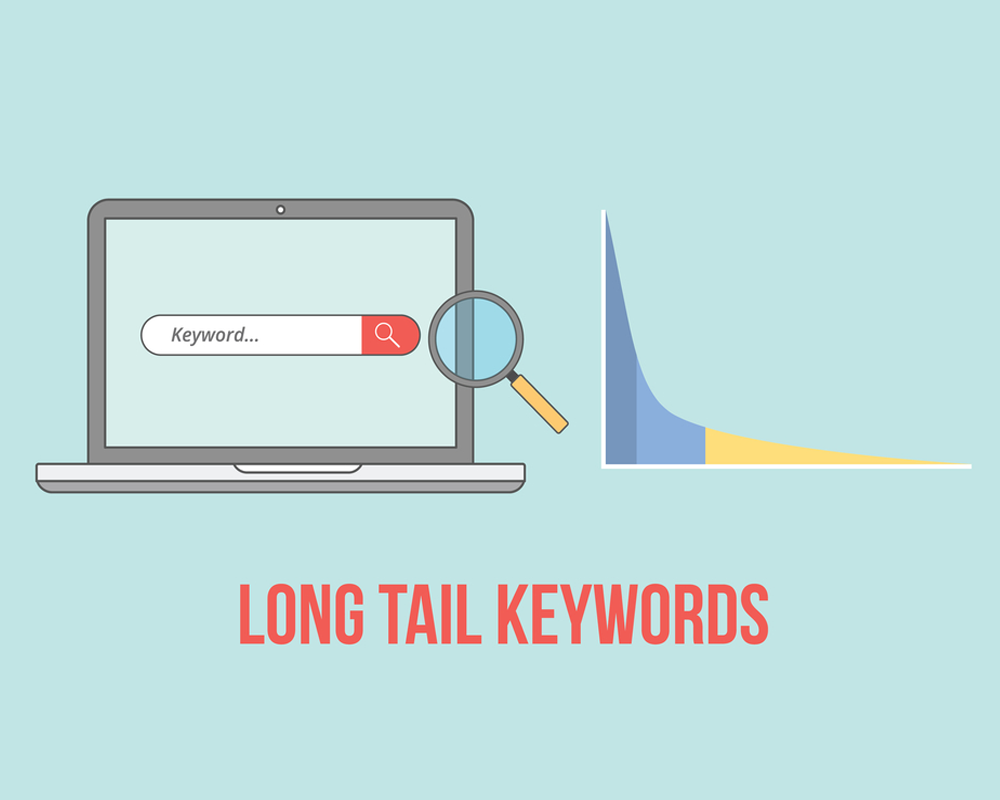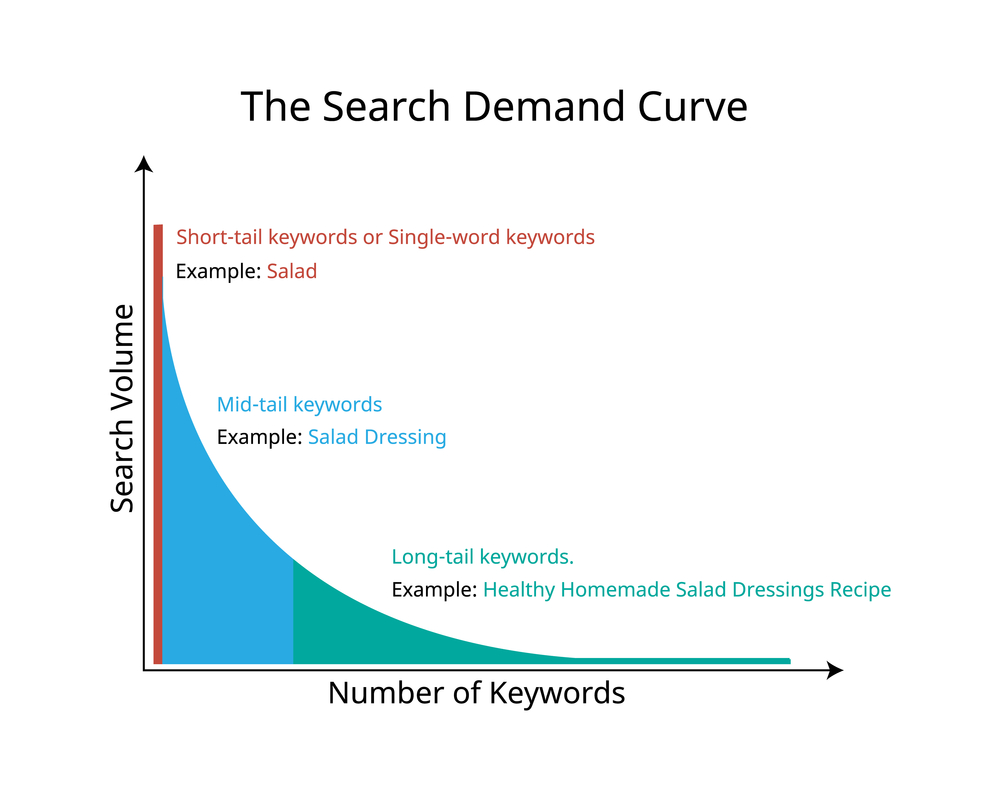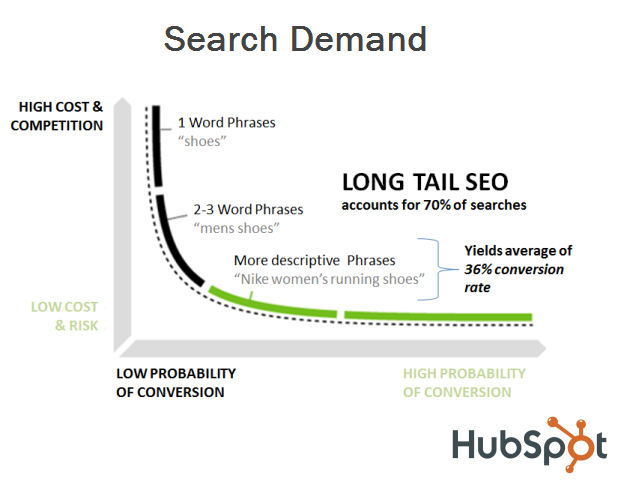What are Long-Tail Keywords?

Keywords are an integral part of SEO (search engine optimization), but what are long-tail keywords? And why should you care?
Long-tail keywords are more.
They make the content on your website more specific and more relevant to the people searching for the solutions that your products or services provide. Because the people visiting your website are more likely to find exactly what they’re looking for, they’re much more likely to buy.
This makes long-tail keywords a key ingredient to your recipe for more digital marketing and SEO success … more business success.
Long-Tail Keywords are More Words
Head keywords are simple one- or two-word phrases. They’re so broad and general, that there’s typically a lot of websites competing for that attention and a good spot high up on a search engine results page (SERP).
For example, “marketing” is so general that it’s not even very useful in terms of search.
“Digital marketing” is getting a little more specific, but this is still a very broad head keyword.
Long-tail keywords, on the other hand, combine 3 or more words into a highly targeted, very specific search phrase.
“Digital marketing strategies for pest control companies” is an example of a long-tail keyword search phrase.
Long-Tail Keywords are More Specific
The additional words make the search phrase more specific. Because they’re so specific, you’ll find that there are fewer people searching using any one long-tail keyword search phrase. But don’t let that scare you. That’s actually a very good thing!
Since they have a lower search volume, there tend to be fewer websites using them to compete for positions on the SERP (Search Engine Results Page).

That gives you a better chance of ranking higher in the results.
The specificity also means that the people finding and visiting your website are more likely to really be in the market for exactly what you offer. They tend to stay on your website longer, engage more with your content, and even convert into buyers at a higher rate than visitors landing by way of more general searches.
Long-Tail Keywords Get More Conversions
To put that “higher rate” gained from using long-term keywords into perspective …
If your website converts 2% - 5% of visitors into buyers, that’s generally considered good.
Long-tail keywords yield an average 36% conversion rate, according to HubSpot.
That’s significantly more. Wouldn’t you agree?
More People Use Long-Tail Keywords When Searching
Search behavior has become more sophisticated. More people are using these specific long-tail keyword search phrases as search engines have evolved and as people have gained a better understanding of how to find what they’re looking for.
In fact, Moz reports that long-tail keyword SEO accounts for 70% of searches these days.
And if that’s what people are using to search, you have a better chance of them finding you — and buying from you — if you use the same thing in your SEO strategy to be found.
Do You Want This Kind of More?
As we’ve discussed, adding long-tail keywords into your SEO digital marketing strategy can offer a lot of rewards … when done right.
And we’d like to help you do it right.
We invite you to get in touch with our team to start the conversation and learn more about putting long-tail keywords to work for you.
We’re here to help.








